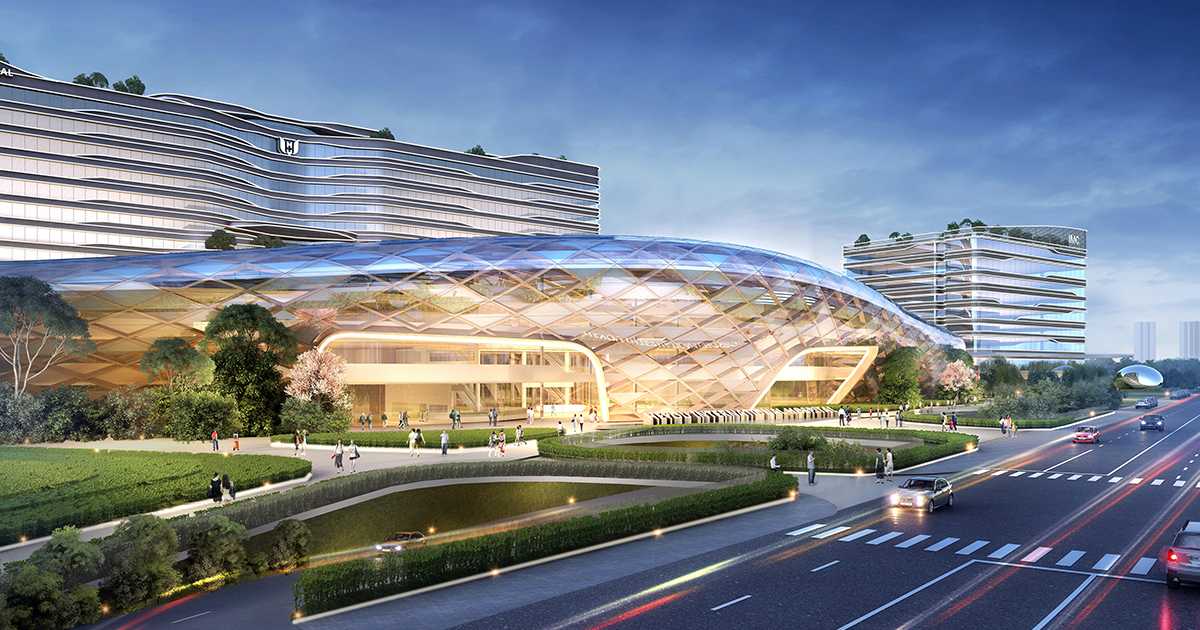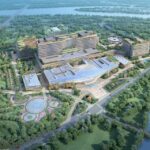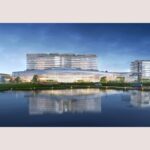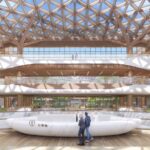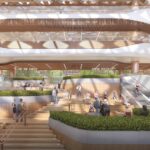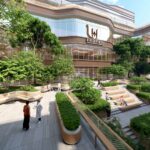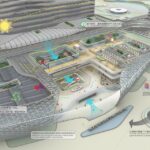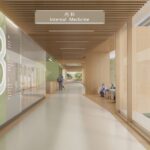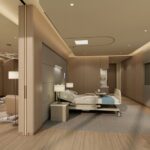Midea Heyou International Hospital | BAI Design International | World Design Awards 2022
BAI Design International: Winner of World Design Awards 2022. The design is inspired by the ancient Lingnan water townscape of Shunde, with its crisscrossing rivers, to create a “garden hospital” that will live in symbiosis with nature. The interior incorporates landscape features such as courtyard and sky gardens, bringing sunlight, fresh air and greenery into the hospital, making the hospital as a whole resemble an urban garden. Nurture and growth are the most beautiful themes in nature, and the design allows the building to grow into nature.
Heyou International Hospital will serve as a comprehensive medical center, shifting from a traditional “treatment-led” to a “health-led” approach, to be accessible to the whole community, applicable to the whole life cycle and cover the whole medical spectrum. The design is committed to improving the artistic aspects of medical building, creating an art gallery experience with a healing environment, integrating advanced energy-saving technologies, setting a new trend in future hospitals, ensuring the foresight of its medical use, while making it more friendly to people.
The masterplan adopts the concept of “one axis, two belts, three zones, eight scenes and one pictorial landscape”, allowing the medical use and function to fully integrate with nature. The landscape axes are introduced to open up view corridors, along which medical spaces can have a symbiotic relationship with nature, a healing environment is thus created, making the medical complex as a whole a graceful health park that can be experienced. The design reflects the ‘whole life cycle’ concept, with a planned ‘plug-in’ modular layout of medical units that can grow with future needs.
The project is located in Shunde District, Foshan City, Guangdong Province, China. Design work has commenced in 2020 and construction has started in early 2021, with the foundation stone laid in November 2020. Construction is expected to be completed by the end of 2023, with the official opening and operation of the project expected to take place in 2024.
The integration of technological innovation and the return of technology to nature: By adopting cutting edge structural design and materials to reduce energy consumption and create a zero carbon emission hospital, and to allow energy saving technology and health care to co-exist. The roof is integrated with curtain wall and photo-voltaic/solar energy system, signifying the idea of returning of technology to nature. The main facade adopts a dia-grid structural system – a high-tech approach to construction, and its unique facade creates an identity in the medical and health sector.
The project has a total site area of 152,234sqm, with a total GFA of about 260,000sqm in phase I (planned capacity of 1,000 beds), and a total planned GFA of about 380,000sqm in the long term (planned capacity of 1,500 beds) and a daily outpatient capacity of about 6,500 people. Phase I consists of a medical complex (133,126sqm), an office building (29,700sqm) and a International Medical Centre IMC (22,656sqm). The medical complex covers emergency, outpatient, medical technology, proton therapy, nuclear medicine and radiotherapy, critical care, rehabilitation etc..
The outbreak of the corona virus has brought about a considerable impact on all industries and has sounded the alarm for the environmental safety of design for medical buildings, as medical buildings are projects not only for the diagnosis and treatment of diseases and the maintenance of human health, but also for the key prevention and control sites of public health emergencies. For the future development of medical building design, combined with the design practice of this project, the project team have conducted an in-depth study on a number of design aspects.
Medical buildings are always subject to changes in medical processes and medical equipment, so a more structured layout and modular ‘plug-in’ design is more conducive to adapting to the changes. The innovation and challenge of medical architecture is reflected in the project’s ‘whole life cycle’ architectural concept, where design is no longer aimed at the current optimum of building and function, but rather at adapting to the changing use and function of the hospital.

Project Details
Firm
BAI Design International
Architect/Designer
Yu Bai
Project Name
Midea Heyou International Hospital
World Design Awards Category
Healthcare Concept
Project Location
Foshan
Project Team
BAI Design International
Country
China
Photography ©Credit
©BAI Design International
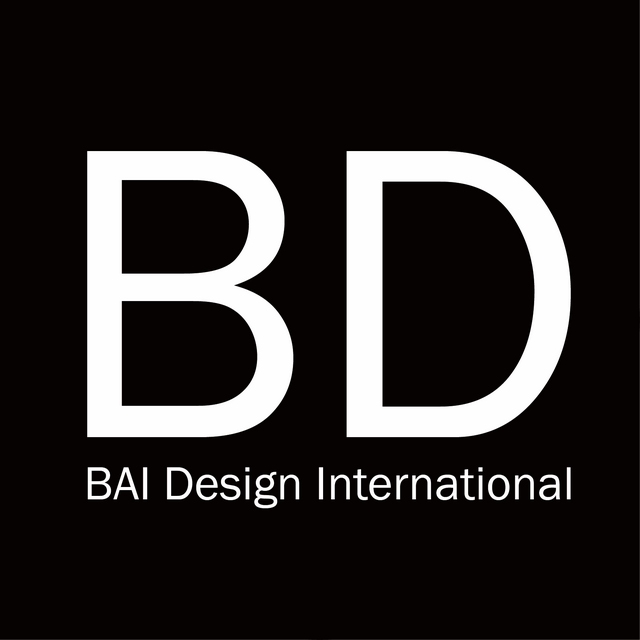 BAI Design International is a RIBA Chartered Practice founded in London. Our design philosophy is: Cultural narrative + Technology in symbiosis with nature. We are specialised in large scale urban development and sustainable design, and committed to improve the local cultural vitality through creativity.
BAI Design International is a RIBA Chartered Practice founded in London. Our design philosophy is: Cultural narrative + Technology in symbiosis with nature. We are specialised in large scale urban development and sustainable design, and committed to improve the local cultural vitality through creativity.
Our recent works are: Midea Heyou International Hospital, Sanxingdui Archaeological Museum, Beijing Lize CBD Masterplan, Beijing S1 Line Maglev Stations, Shenzhen Bay ZTE Headquarters Office Fit-out, Grenada Hartman University Town and Resort.
The projects have been awarded the Best Tall Building in Asia/Australasia, Masterprize, RIBA, WAF, WAN, ICONIC, OPAL, TITAN Property, A’ Design Awards, etc..



